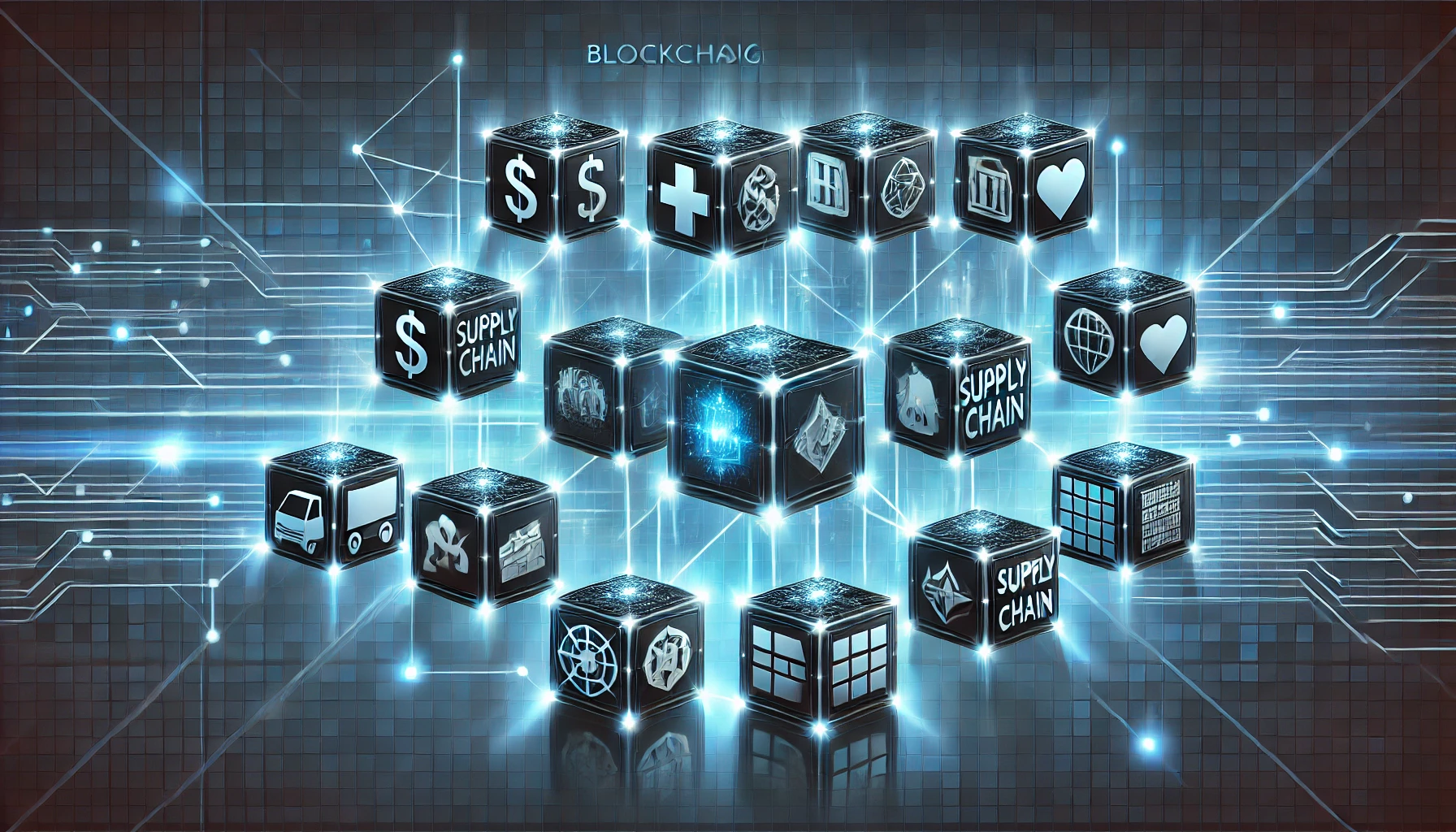Blockchain Beyond Cryptocurrency: Exploring Its Potential Across Industries
Introduction
Blockchain—it’s a term most of us associate with Bitcoin or other cryptocurrencies. But did you know that blockchain’s potential extends far beyond digital currencies? This technology has quietly been transforming industries like finance, healthcare, and supply chain management, paving the way for a more transparent and efficient world.
Blockchain Basics
How Blockchain Works
At its core, blockchain is a distributed ledger technology. Transactions are recorded in blocks, linked in a chain, and stored across a decentralized network. This ensures that no single entity can tamper with the data.
Key Features
- Decentralization: Eliminates the need for intermediaries.
- Transparency: All participants have access to the same data.
- Immutability: Data once recorded cannot be altered, ensuring integrity.
Blockchain in Finance
Secure Payments and Transactions
Blockchain reduces the risk of fraud in payments, making transactions faster and cheaper by removing intermediaries.
Decentralized Finance (DeFi) Revolution
DeFi platforms enable peer-to-peer lending, borrowing, and trading without traditional banks, creating financial inclusivity.
Fraud Prevention and Identity Verification
Blockchain ensures secure storage and verification of personal identities, reducing fraud in financial systems.
Blockchain in Supply Chain Management
Tracking Goods and Ensuring Transparency
From farm to table, blockchain ensures that every step in the supply chain is traceable, reducing inefficiencies and fraud.
Enhancing Efficiency in Logistics
Smart contracts automate processes like inventory management, making logistics smoother and faster.
Reducing Counterfeiting Risks
Blockchain can verify the authenticity of products, especially luxury goods and pharmaceuticals.
Blockchain in Healthcare
Patient Data Security and Privacy
Blockchain secures sensitive patient data, giving individuals control over their health information.
Streamlining Medical Records
Interoperable records allow seamless sharing of data between hospitals, improving patient care.
Enhancing Drug Traceability
Blockchain ensures that medications are genuine and tracks their journey from manufacturer to pharmacy.
Blockchain in Real Estate
Simplifying Property Transactions
Blockchain eliminates paperwork, enabling fast and secure property transactions.
Reducing Fraud with Smart Contracts
Smart contracts automate agreements, reducing the chances of fraud or disputes in real estate deals.
Blockchain in Education
Secure Academic Records
Blockchain ensures the integrity of academic transcripts, making them tamper-proof.
Verifying Credentials and Certificates
Employers can easily verify the authenticity of qualifications without relying on third parties.
Blockchain in Governance
Transparent Voting Systems
Blockchain-powered voting ensures transparency and reduces the risk of electoral fraud.
Reducing Bureaucracy
Smart contracts can automate governmental processes, saving time and resources.
Blockchain in Gaming and Entertainment
Non-Fungible Tokens (NFTs)
NFTs allow creators to monetize digital art, music, and other assets while maintaining ownership rights.
Enabling True Ownership of Digital Assets
Gamers can truly own in-game assets, which can be traded or sold outside the platform.
Blockchain in Energy Sector
Peer-to-Peer Energy Trading
Blockchain enables individuals to trade excess renewable energy with their neighbors.
Enhancing Grid Management
Smart grids powered by blockchain can optimize energy distribution and usage.
Blockchain and Environmental Sustainability
Carbon Credit Tracking
Blockchain simplifies carbon credit trading, ensuring transparency and accountability.
Fighting Climate Change
By enabling better resource management, blockchain helps in combating climate change.
Challenges of Blockchain Adoption
Scalability Issues
Blockchain networks struggle to handle large volumes of transactions quickly.
Regulatory Hurdles
Many countries lack clear regulations, hindering blockchain adoption.
Energy Consumption Concerns
Some blockchain systems, especially proof-of-work, consume massive energy.
Future of Blockchain Technology
Emerging Trends and Innovations
From quantum-resistant cryptography to eco-friendly consensus mechanisms, blockchain continues to evolve.
Potential Impact Across Industries
As technology matures, expect to see blockchain in almost every sector, from agriculture to space exploration.
Conclusion
Blockchain is far more than the backbone of cryptocurrency. Its transformative power spans industries, solving real-world problems and creating opportunities for innovation. The possibilities are endless, and this is just the beginning of the blockchain revolution.
FAQs
1. What is the biggest benefit of blockchain in industries other than cryptocurrency?
Its ability to provide transparency and security across various operations is a game-changer.
2. How does blockchain ensure transparency?
By maintaining a decentralized ledger that all participants can access and verify.
3. Are there limitations to blockchain technology?
Yes, including scalability, energy consumption, and regulatory challenges.
4. Can blockchain help in combating global issues like climate change?
Absolutely. Blockchain aids in tracking carbon credits and optimizing resource management for sustainability.
5. What industries are expected to adopt blockchain the most in the coming years?
Finance, healthcare, supply chain, and governance are leading the way, with more to follow.
Please don’t forget to leave a review.
on Techcyclohub
___________________________________________________________________________________________________
Book Recommendations:
- Blockchain Revolution by Don Tapscott and Alex Tapscott
- An insightful guide to how blockchain is transforming industries worldwide.
- Blockchain Basics: A Non-Technical Introduction in 25 Steps by Daniel Drescher
- Perfect for beginners to understand blockchain concepts without technical jargon.
- Blockchain and Supply Chain Logistics: Evolutionary Case Studies by Nachiappan Subramanian
- Focuses on the practical application of blockchain in supply chain management.
- Blockchain Technology in Healthcare Applications by Bharat Bhushan
- Discusses the integration of blockchain in healthcare for secure and efficient solutions.
- Mastering Blockchain by Imran Bashir
- A comprehensive resource on blockchain, covering everything from its basics to advanced applications.








